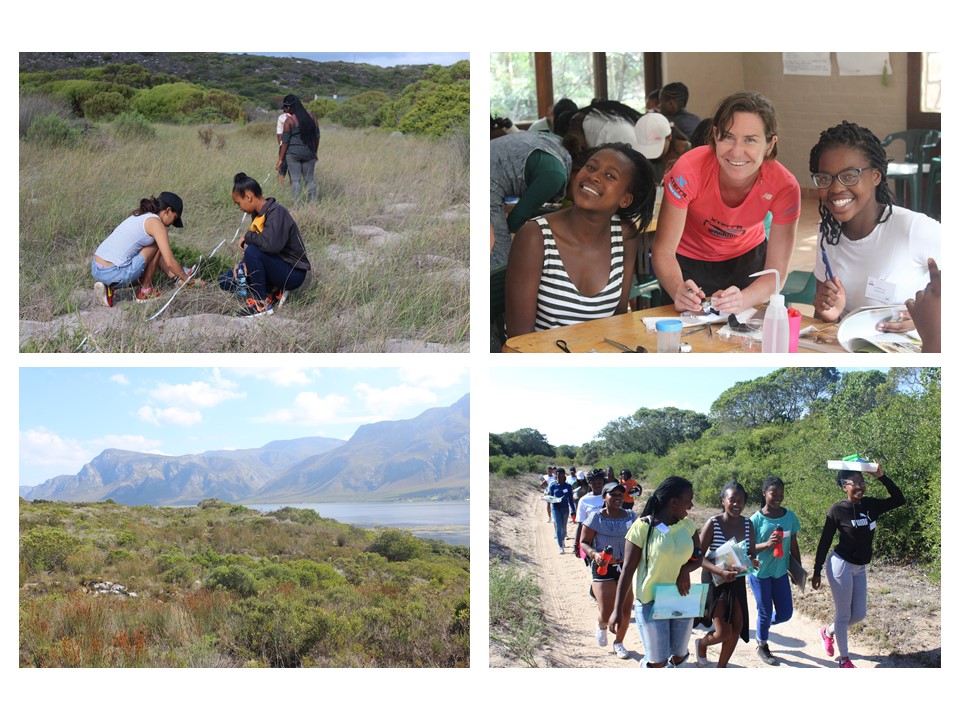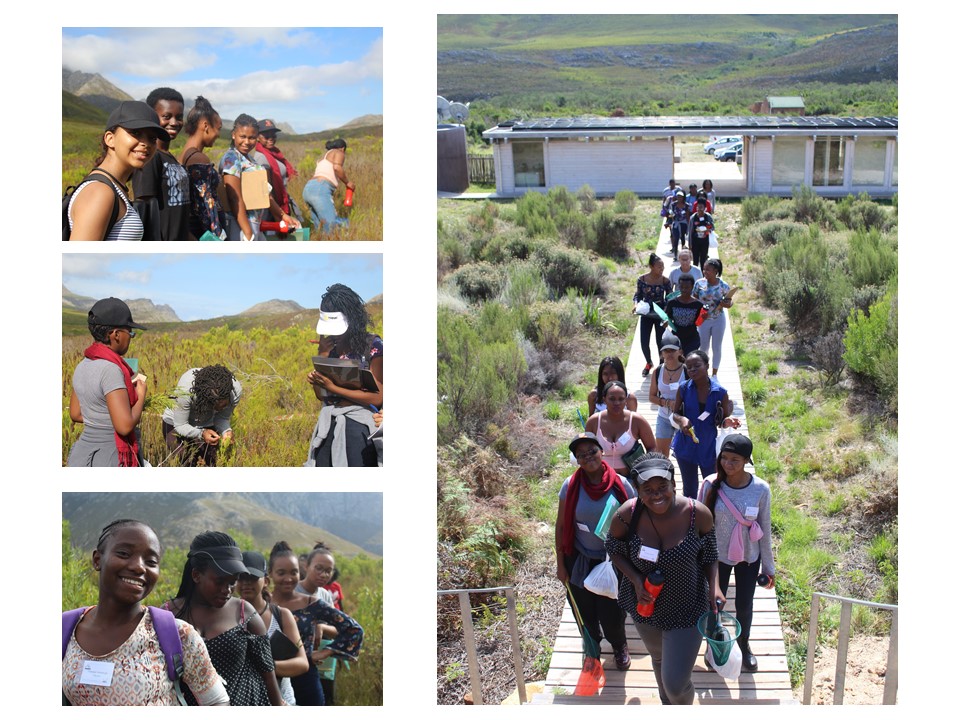Early April brought about the successful execution of Iimbovane’s first ever water-focused workshop, in Stanford, Western Cape. Seventeen Grade 10 ladies from five Cape town-based schools joined us for a week out in nature – the best classroom.
The workshop venue was Wortelgat Outreach Trust, a stunning nature reserve on the banks of the Kleinrivier lagoon. Here we stayed in converted stable chalets surrounded by Milkwoods and coastal fynbos. The fantastic natural habitat in this location allowed us to conduct a variety of studies at our doorstep.
Titled “Water Matters”, the purpose of the workshop was to create awareness about our current water crisis, and the importance of water to local biodiversity. This was done by integrating water related activities into biodiversity studies, thus learners gained both practical experience collecting real-life biodiversity data, and see the importance water has in these systems.
The programme started on Tuesday 3 April with an introduction to the scientific method. We invited Ntsiki Langa, the Recruitment and Marketing officer for the Faculty of Science at Stellenbosch University to give a talk that evening about science at Stellenbosch University. Ntsiki stayed with us for the first two days to converse less formally with the learners during activities and answer any questions they might about Stellenbosch University.
Each morning began with a ten minute aerobics session to get the girls energised for the day. This was a new addition to our conventional programmes and we were delighted to see that it was met with a surprising amount of enthusiasm. Throughout the week we conducted four different biodiversity studies. A miniSASS in a nearby freshwater system, an introduction to ant diversity and collection methods, a comparison of plant diversity in two areas and perhaps the most relevant, a water audit whereby learners had to record their water usage for the duration of the week.
A highlight for many was going for a hike along the Palmiet River trail in Kogelberg Nature Reserve. It was the first time the majority of the learners had ever hiked before, and they were not disappointed. Despite the challenge of the long walk on a hot day, it was rewarded with a spectacle of mountain fynbos at its finest.
On the final afternoon, we taught the learners how to enter their data into Microsoft Excel and to generate simple graphs. After a brief introduction to PowerPoint, learners worked in groups to create a basic scientific presentation, reporting on one of the studies they had done in the week, which they then presented on the final morning.
The four day workshop ended with everyone sad to leave but tired after a busy week. We were very impressed with the work ethic of the girls, who happily worked late in the evenings, meticulously collating all their data from the day. While the girls came from different schools (Luhlaza High School, Manzomthombo Secondary School, Breërivier Secondary School, Malibu High School and Sarepta Secondary School), they integrated with each other readily and they were a pleasure to work with.
Overall, we had very positive feedback about the workshop, here are some of their thoughts:
When asked what new thing she learnt at the workshop, a girl from Sarepta Secondary School responded:
“I have learned how to save water and realised that we use a high rate of water which is not good.”
When asked what she enjoyed the most about the workshop, a Malibu High School learner said:
“Interacting with others and being able to be exposed to many new things (plant and ant diversity).”
